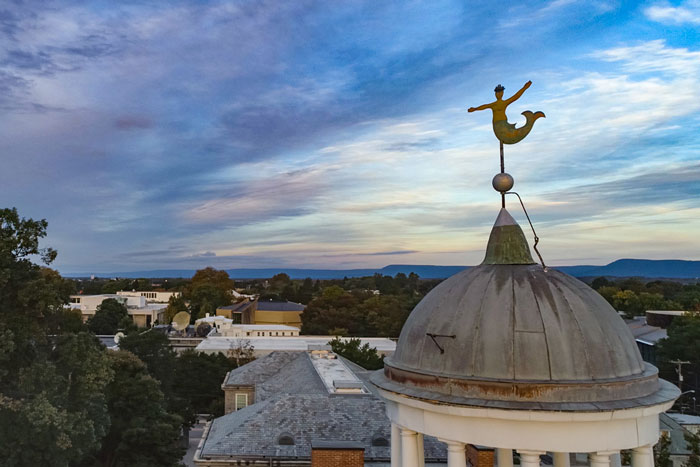Dickinson’s ‘Civil Dialogue’ Program Renamed ‘Dialogues Across Differences’

by MaryAlice Bitts-Jackson
Words matter. That includes the words we choose to use and those we choose to omit. And so Dickinson has renamed an impactful new project in a move to better represent the project’s true intent and work. Originally titled “Civil Dialogue Across the Curriculum, Campus & Community,” the project is now named “Dialogues Across Differences.” That tweak signals an important move away from the use of the word “civil”—and the imprecise, and at times loaded, connotations that term can bring.
“The words ‘civility’ and ‘civil’ mean too many different things to different people,” says Assistant Professor of Philosophy Amy McKiernan, who co-directs the program with Assistant Professor of Political Science Kathryn Heard and Noreen Lape, associate provost of academic affairs and director of the writing program. “As we see it, civility has more to do with etiquette than ethics, whereas our work focuses on learning how to ask questions of understanding across differences and disagreements.”
Funded by a three-year, $276,296 grant awarded by the Arthur Vining Davis Foundations, the Dialogues Across Differences project aims to introduce students to new ideas without the threat of harm to one’s dignity or derision.
As McKiernan notes, calls for “civility,” on the other hand, have been used to silence dissenting views, especially those expressed by marginalized community members. In recent years, we’ve seen this dynamic in action as protesters have been urged to stand down in the name of “civility.” Colonizers have also used the word “civilize” to refer to their quest to replace Native languages, customs and beliefs with their own. Dickinson need look no further for historical context on this point than the Carlisle Indian Industrial School, a few miles from campus, where Native American children were educated and “civilized,” inflicting tremendous generational harm.
In these instances, and others, a “civilized” society is portrayed as one in which differing views, backgrounds, experiences, cultures and races are not equally valued, and where the right to free speech for all is not guaranteed.
Nothing could be further from the culture that the Dialogues Across Differences program is designed to foster—on campus and in the wider world. Dickinson’s multipronged approach to teaching and promoting productive dialogue methods and techniques, in contrast, imparts strategies to:
- create community agreements and expectations
- ask questions that seek to build understanding, rather than operating from a place of fear
- foster trust
- and listen carefully—especially when there is disagreement.
And so the new name is a truer representation of the important work afoot. The first faculty learning community for this program has already been offered. The Dialogues Across Differences leadership team is now recruiting students for the new team-taught fall course, Speaking and Writing Across Difference, to be held in fall 2023.
“It’s an exciting opportunity to empower members of our community by offering them dialogical tools, rather than encouraging people to merely ‘keep it civil,’ ” McKiernan says.
The potential effects are profound, adds President John E. Jones III '77, P'11, under whose leadership this groundbreaking program takes shape. As he notes, the ability--or inability--to engage in productive dialogues permeates every facet of our lives.
"Those who doubt the need for this kind of initiative need only look to Washington, D.C., where, for too long, our elected officials have lacked the ability to engage, despite philosophical differences, to solve the substantial problems facing our country," Jones says. "Our goal at Dickinson is to produce leaders who possess all the tools to break these searingly partisan deadlocks in our national debate by engaging productively with those with whom they disagree."
TAKE THE NEXT STEPS
Published February 8, 2023